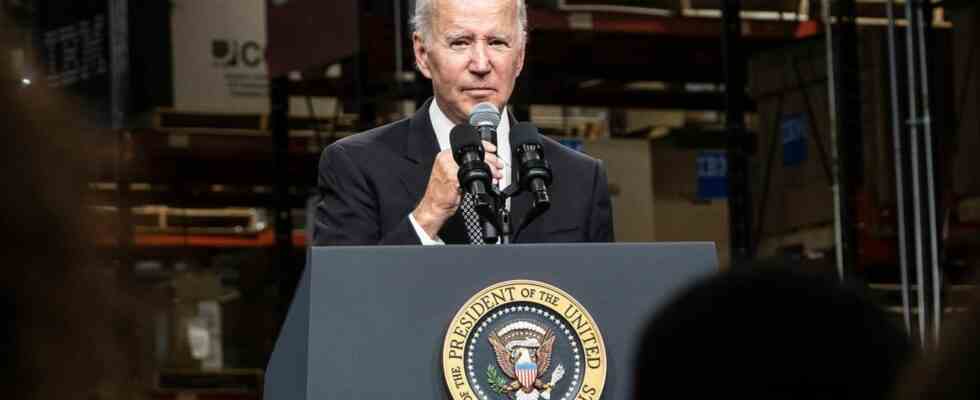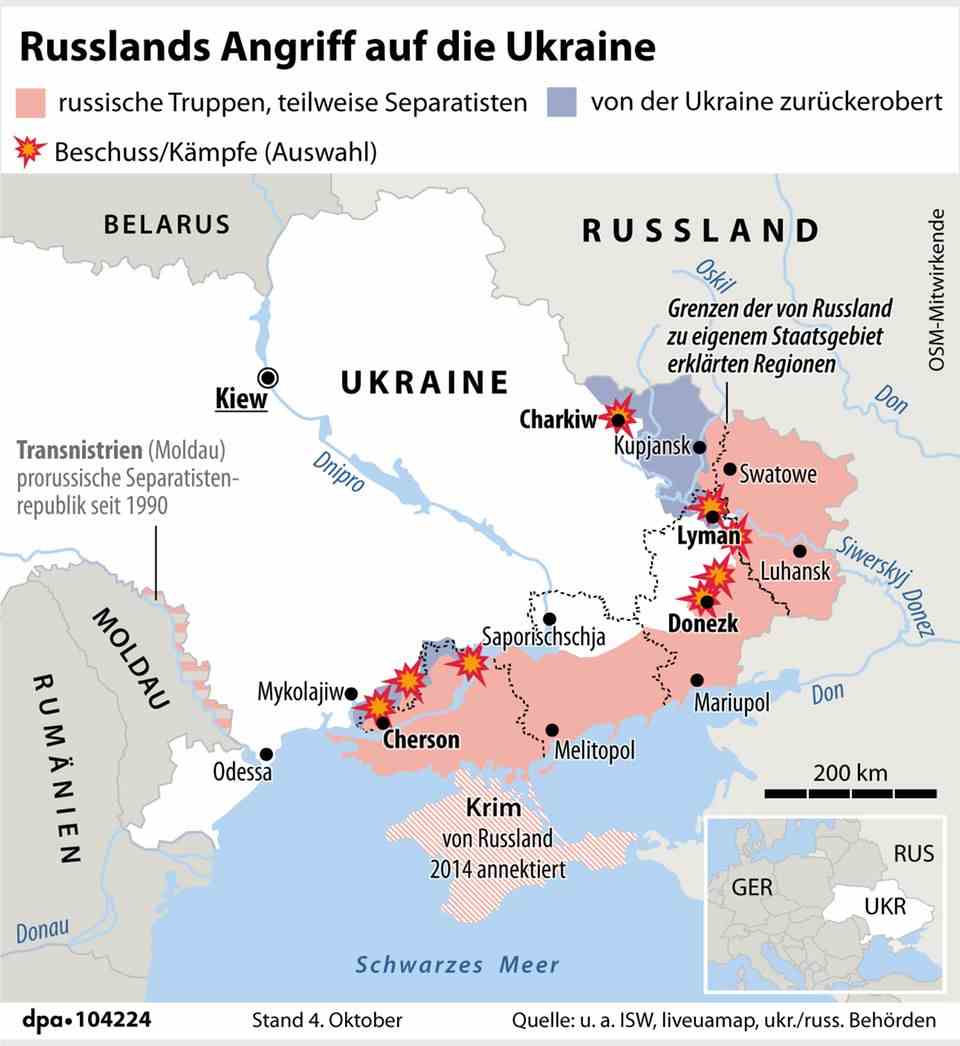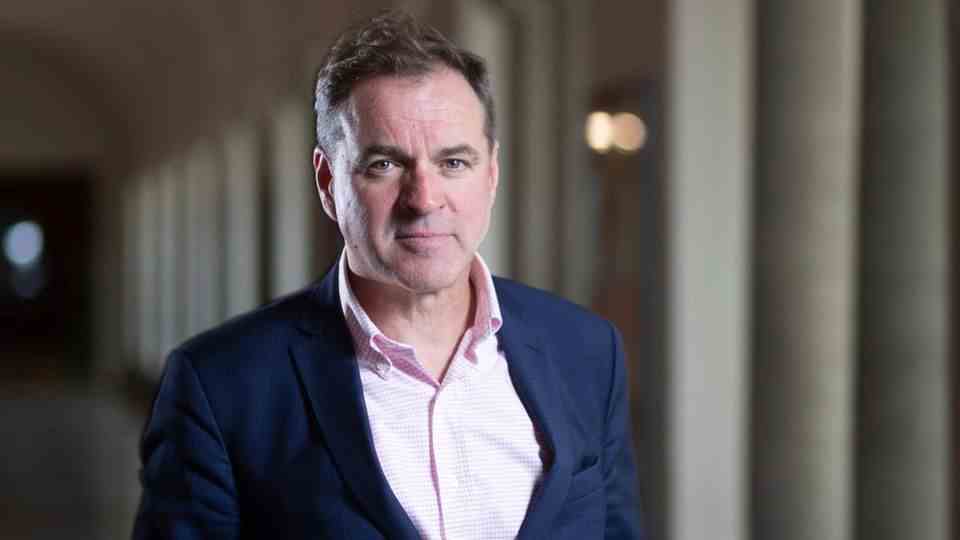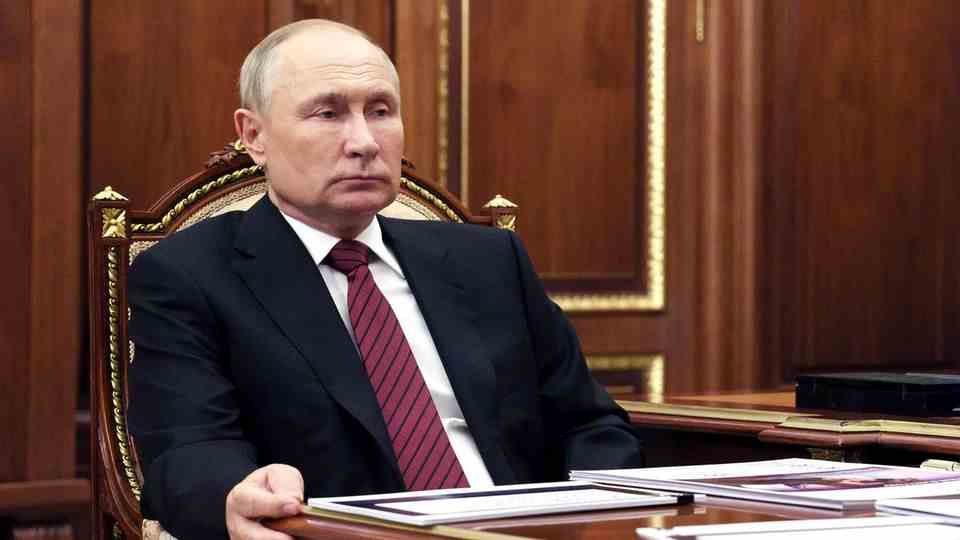Nuclear escalation warning
Biden evokes “Armageddon” and counts on Russia getting the message
US President Joe Biden: “We haven’t faced the prospect of Armageddon since Kennedy and the Cuban Missile Crisis”
© Lev Radin/ / Picture Alliance
US President Joe Biden has commented on Russia’s nuclear saber-rattling in unusually drastic terms. His comparison with the Cuban Missile Crisis should not be a coincidence.
The United States takes the threats seriously. Your defense minister has made that clear, as has the national security adviser, and now the president himself – in unusually drastic language.
“We haven’t faced the prospect of Armageddon since Kennedy and the Cuban Missile Crisis,” said Joe Biden in New York on Thursday. He knows Russian President Vladimir Putin quite well, Biden said. “He doesn’t joke when he talks about the possible use of tactical nuclear weapons or biological or chemical weapons” because the Russian military is weakening in its campaign against Ukraine.
The background to this is Putin’s repeated warnings wanting to use “all available means” in the war against Ukraine, should the “territorial integrity” of Russia be threatened. Putin’s threats came shortly before the illegal annexation of more Ukrainian territories, which has now been completed under Russian law. In the West, his words were read as the clearest threat yet to use nuclear weapons.
The fact that President Biden is now talking about a possible “Armageddon” and drawing a comparison to the Cuban Missile Crisis during the Cold War is new and quite remarkable in this clarity, but follows the previous strategy of the USA of vague and unmistakable signals to Moscow to allow a nuclear escalation impede.
Joe Biden warns Moscow
“Directly, privately and at a very high level,” the White House told the Kremlin “that any use of nuclear weapons will have catastrophic consequences for Russia.” National Security Advisor Jake Sullivan told NBC Newsafter Putin brought up the possible use of nuclear weapons. “And we have said clearly what that will entail.” Of course, the Americans are not publicly revealing their plans.
The USA obviously does not want to heat up the situation any further, on the one hand, but on the other hand they want to counter the Russian threatening gestures with the unmistakable warning that they will react in an emergency – entirely in line with the policy of deterrence.
President Biden had already warned of a far-reaching reaction from the USA without wanting to go into detail. “I won’t tell you”, he said in an interview with CBS News, the reaction will in any case be “consequential”. Just this much: Russia is becoming “more of an outcast in the world” than it has ever been.
Against this background, it should not be a coincidence that Biden has now drawn a comparison to the Cuban Missile Crisis. At that time, the Cold War came to a head dramatically. The Soviet Union stationed medium-range missiles on the island in October 1962, and the two superpowers headed for a nuclear exchange. Eventually, the two-week conflict was resolved through negotiations. Not least because the then US President John F. Kennedy was always in contact with Moscow via confidential channels and was careful to avoid an unwanted escalation. Biden also seems to be following this approach.
The US takes “nuclear saber-rattling” seriously and remains vigilant Defense Secretary Lloyd Austin also testified to CNN, who warned his Russian counterpart, Sergei Shoigu, against “going down this path and committing this kind of irresponsible behavior.” At the same time, Austin stressed that he had no evidence that Putin intends to use nuclear weapons. In doing so, the US government is likely to have attempted to address corresponding fears and calm the situation.
So far the strategy seems to be working
Nevertheless, in view of the recent setbacks for Russia, which put Putin under increasing (successful) pressure and could lead to a further escalation, the question arises as to how the West could react to a possible use of nuclear weapons.
Former CIA director and retired four-star general David Petraeus, 69, was the first high-ranking ex-US official to comment publicly on a possible reaction on Sunday. According to this, the US and NATO allies could “eliminate any Russian conventional forces that we see on the battlefield (in Ukraine) see and identify,” said Petraeus to ABC News. The same applies to the troops in Crimea, annexed by Russia in 2014. The Russian Black Sea Fleet could also be wiped out.
However, Petraeus emphasized that this was his private “hypothesis” and not considerations in the White House. Not only there, since the beginning of the war, several scenarios have been played out and emergency plans developed in order to be able to react quickly in an emergency, reported CNN and the “New York Times”.
However, analysts inside and outside the government doubted that Putin could actually seek nuclear escalation. Alone: The use of nuclear weapons would probably be unsuitable to advance his war goals (Read more here).
And so the public warnings that a nuclear strike would have catastrophic consequences for Russia remain. So far with success.
Russia’s accumulated gains in Ukraine since February are crumbling by the day, even though Putin has tried to cement them in place with his indirect nuclear threats. Should a counter-offensive in the areas annexed by force present a red line for Moscow, then she crossed the Ukrainian army days ago. “Armageddon” did not happen.
Sources: “The Guardians”, “politico”, CNN, NBC News, CBS News, ABC News, “New York Times”





